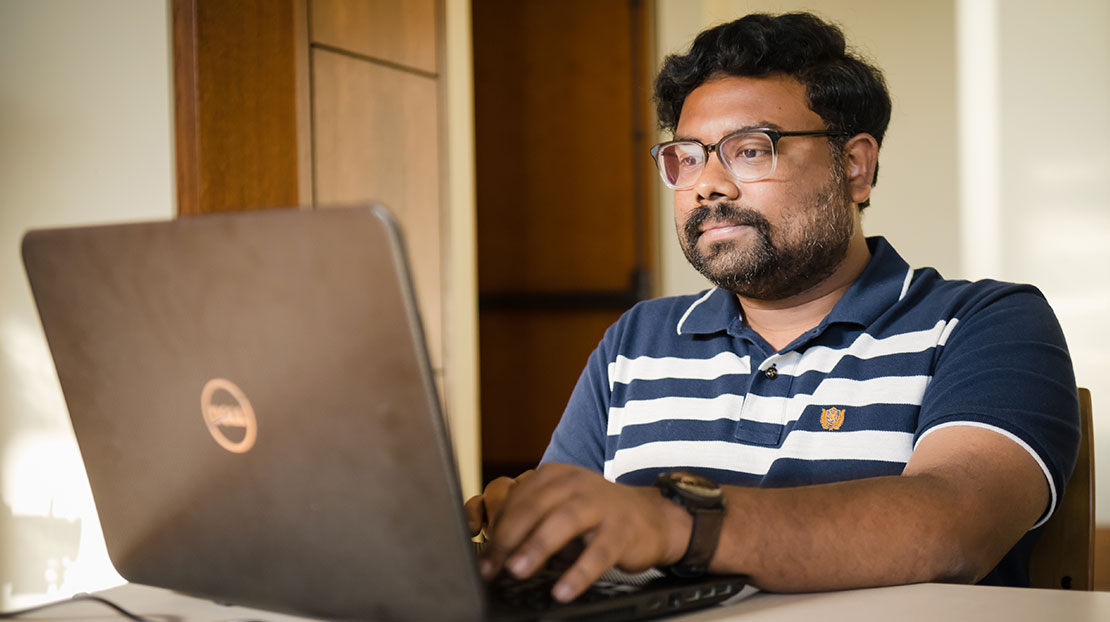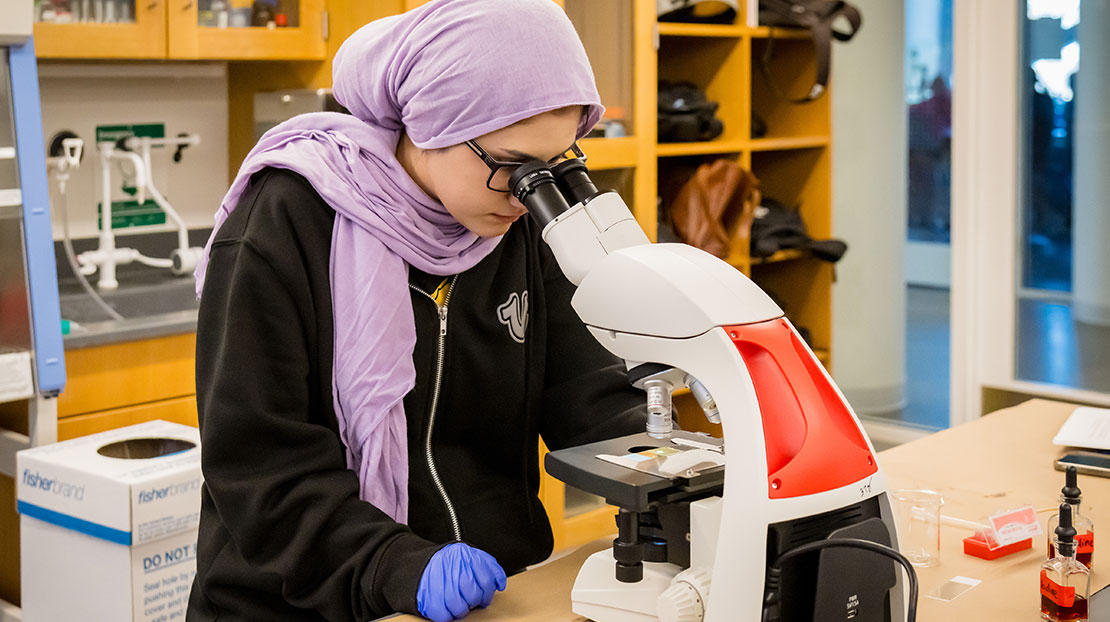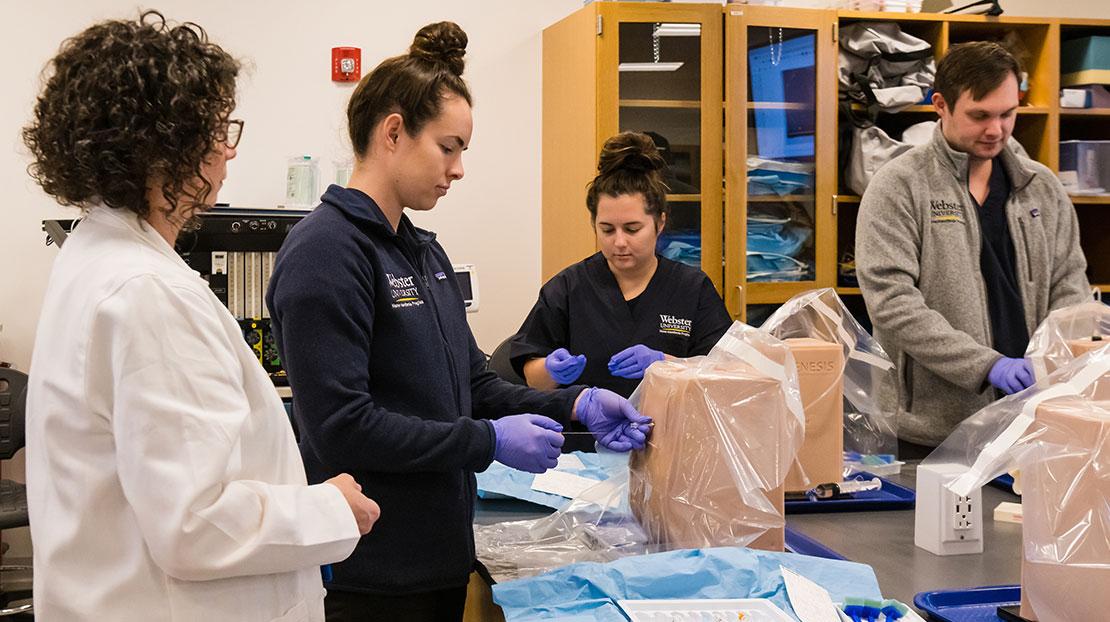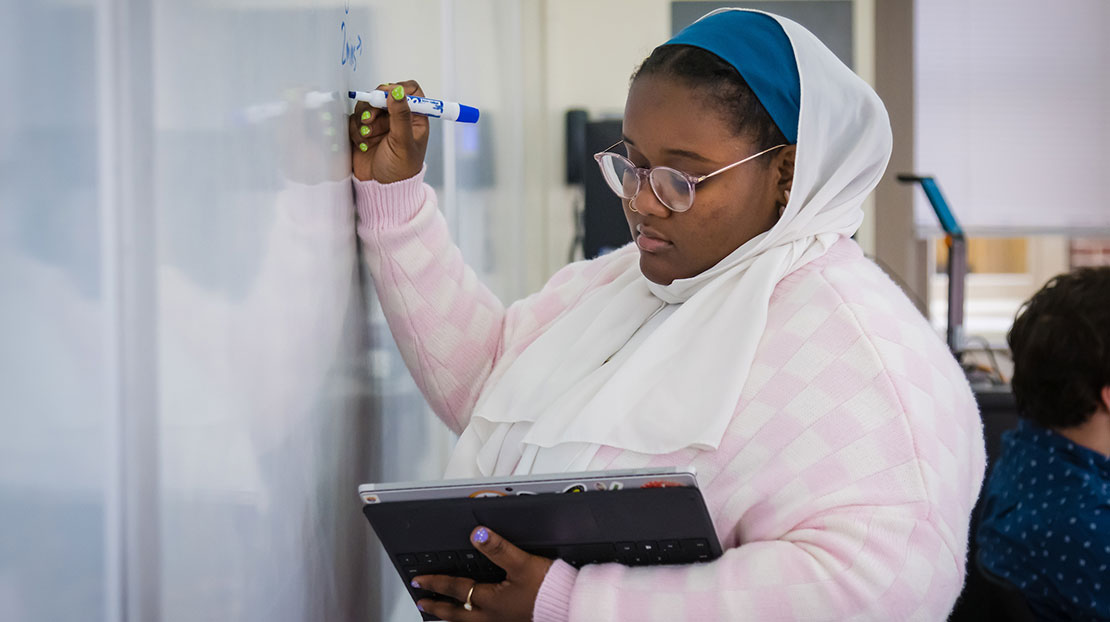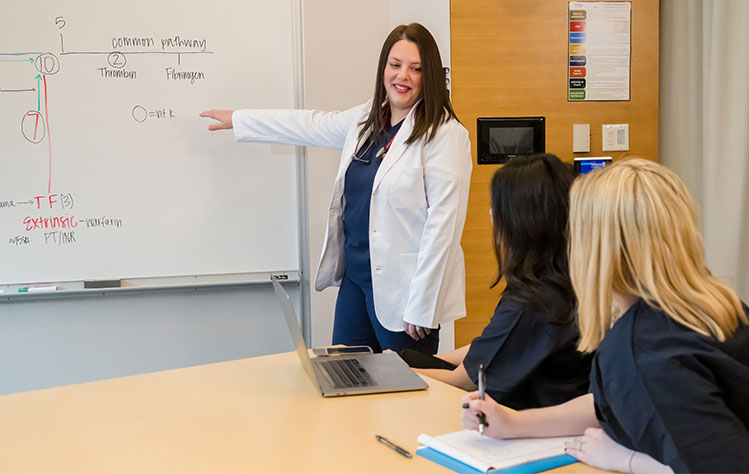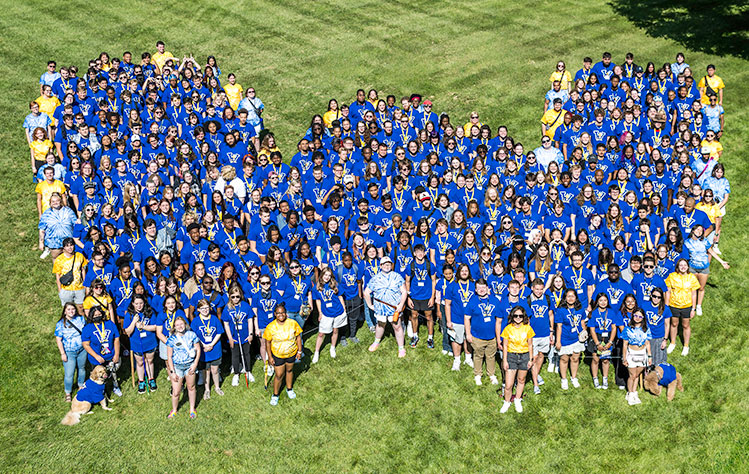Webster’s Cybersecurity program was identified in 2022 as one of the most innovative
programs in the country by the National CyberWatch Center. Our program prepares students
and professionals to succeed in demanding positions in both the public and private
sectors, protecting the ever-expanding, global reach of computer systems. Graduates
may oversee, operate or protect critical computer systems, information, infrastructures
and communications networks from cyber crime, cyber fraud or cyber espionage.
Transcript
[Music]
Text on screen: Program Spotlight: Cybersecurity Degree Program
Text on screen:James Curtis, PhD, Chair, Computer and Information Sciences Department
James Curtis: Our program is one of the most unique programs in the United States. Very few schools
have three different master's degrees in cybersecurity, or data analytics, or any
of them. But in this particular one, we have three different cybersecurity degrees.
First one is our Master of Science in Cybersecurity Operations, and it's for people
who are in the operations area of cybersecurity management leadership.
Text on screen: CYBERSECURITY OPERATIONS (MS)
The other two degrees are very unique. The first one is the Master of Science in Cybersecurity,
with an Emphasis in Artificial Intelligence.
Text on screen: Emphasis in ARTIFICIAL INTELLIGENCE
The program is very tailored toward merging artificial intelligence, machine learning
and cybersecurity, which is really a unique kind of field that we're moving into as
technology advances. The other degree is the Master of Science and Cybersecurity,
with an Emphasis in Data Analytics.
Text on screen: Emphasis in DATA ANALYTICS
We've taken those two disciplines and really made them complement, putting them together.
[Footage of student walking down a sidewalk at Webster University]
[Footage of Webster University banner waving in the wind with Browning Hall in the
background at sunset]
Text on screen: Maoting Z. Student
Maoting Z.: Webster was the first few schools that started a cybersecurity program, and I do prefer
to learn from the school who started the program first, ‘cause they have more experience.
Text on screen: Flexible Learning: Earn your Degree in Multiple Modalities
Curtis: For all three of our master's degrees, we offer multi-modality. We offer online, on
ground, web net plus or a mix.
[Footage of student working on a laptop, cut to footage of cybersecurity professor
teaching an in-person class in a classroom, cut to two students working on a laptop
together smiling]
Maoting: The thing about having online classes is you can manage your time, right? You know,
things do happen like, you do get sick. You do have emergencies.
[Footage of a student working on a laptop, doing Webster coursework online]
Curtis: People travel a lot, shouldn’t-shouldn't be worried about enrolling because we can
get to them wherever they are.
[Footage of student taking a Webster course on a tablet]
Text on screen: Dynamic Learning: Evolving to Meet Today’s Challenges
One of the things about being in the discipline of cybersecurity is the fact that
we always change. Our curriculum is never the same.
[Footage of professor and students working hands-on with a server in a cybersecurity
class]
As a matter of fact, I don't remember ever having a curriculum from one semester to
the next that was the same. As the new threats evolve, we-we respond, we develop new
capabilities. We have to teach our students that.
Maoting: I do feel like how Webster teaches us is definitely lead us to success.
[Footage of professor presenting a lesson in a classroom]
They show us more than one way of how to solve the problem and how people think about
the problem in cybersecurity.
Curtis: One of the things we're very proud of is our adjunct instructor cadre.
Text on screen: Experience from PRIVATE AND PUBLIC SECTORS
We have teachers that come from government, military, FBI, police departments.
Maoting: They have a different perspective, because they have working different companies,
different fields.
[Footage of professor working one-on-one with students in classroom]
So when we ask some general question about internship, about “how do I apply for a
job?” I would just email my professors, and they always give me answers and support
me.
[Footage of students working together on various projects and smiling]
Curtis: I think that Webster's programs and what we offer our students, no one comes close
to what we do from the standpoint of quality, flexibility and capability.
[Webster University logo animates on screen]
Text on screen: webster.edu
[Outro Music]
Our graduate programs in cybersecurity offer the following degree and certificate
options:
Webster University also offers a Bachelor of Science in Computer Science with an Emphasis
in Cybersecurity (BS) program, for which it holds accreditation from the National
Security Agency (NSA) and the Department of Homeland Security (DHS).

